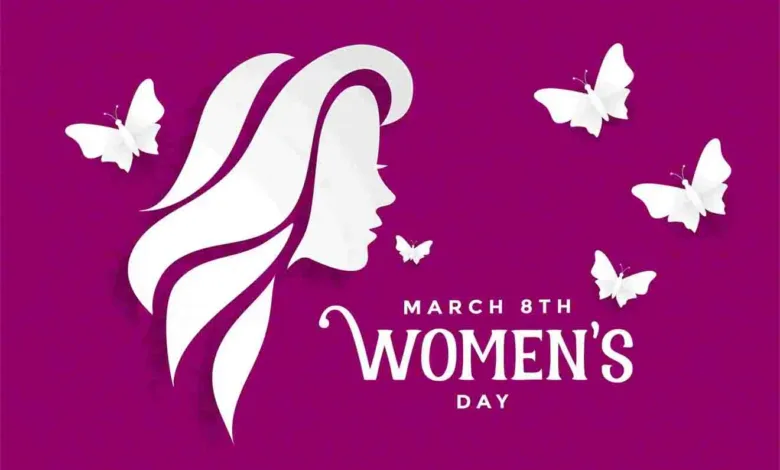Breaking stereotypes: Women who changed the world

GUEST COLUMN
 Dr BKS Sanjay
Dr BKS Sanjay
International Women’s Day (IWD) is celebrated annually on March 8 to recognise the achievements of women across all sectors and highlight the continued struggle for gender equality. It is a global movement that acknowledges the contributions of women in fields such as education, politics, business, science, sports and arts. More than just a day of celebration, IWD is a call to action, reminding the world that despite progress, gender disparities remain in many areas, including the workplace, leadership roles, access to education and personal freedoms. IWD’s origins date back to the early 20th century, when women began to demand better working conditions, voting rights and an end to discrimination.
The first official IWD was celebrated on March 19, 1911, in several European countries. Women across these nations held rallies, demanding voting rights, workplace protections and equal pay. Over time, the movement grew and in 1977, the United Nations (UN) officially recognised March 8 as IWD. Since then, the UN has introduced annual themes, each focusing on crucial issues affecting women’s rights, such as gender-based violence, digital inclusivity, environmental sustainability, and workplace equality.
Women have broken barriers in politics, with figures like Indira Gandhi, Angela Merkel and Jacinda Ardern proving that leadership is not defined by gender. In science, pioneers like Marie Curie, Rosalind Franklin and Katherine Johnson have made groundbreaking discoveries despite facing discrimination. In sports, women like Serena Williams, Simone Biles and PV Sindhu have redefined excellence. By highlighting these contributions, IWD inspires younger generations to pursue their ambitions without fear of gender-based limitations. While the world has seen progress in gender equality, challenges persist. Leadership roles remain male-dominated, with women holding a smaller percentage of executive positions in politics, business and media. In many countries, cultural and social barriers still discourage women from pursuing careers in traditionally male-dominated fields. The representation of women in STEM (Science, Technology, Engineering, and Mathematics) fields remains low, highlighting the need for greater educational opportunities and workplace inclusivity.
Another major issue is gender-based violence, which continues to affect millions of women worldwide. Domestic violence, sexual harassment, human trafficking and honour killings are stark realities in many societies. Women and girls in conflict zones, refugee camps and marginalised communities face heightened risks of violence and exploitation. The fight for reproductive rights and access to healthcare also remains a critical issue, particularly in regions where cultural and legal restrictions limit women’s autonomy over their own bodies. Despite these challenges, IWD is also a time to acknowledge the strides made toward gender equality. Legislative reforms in many countries have led to better protections for women in the workplace, stronger laws against domestic violence and greater representation in politics. Many businesses are actively working toward inclusivity, implementing equal pay policies, parental leave benefits and mentorship programmes for women.
Despite the progress made, there is still much work to be done. Achieving true gender equality requires efforts from all sectors of society—governments, businesses, educational institutions and individuals. Education plays a vital role in shaping attitudes toward gender equality. Schools and universities must integrate gender-sensitive curricula, challenge stereotypes, and promote the idea that boys and girls have equal potential. Workplace policies should ensure equal pay, eliminate bias in hiring and promotions and provide support systems for working mothers. Governments must enforce strict laws against gender-based violence and discrimination, ensuring that women have legal protections and access to justice.
Individuals can also contribute to the cause by supporting women-owned businesses, mentoring young girls, advocating for workplace inclusivity, and challenging harmful gender norms in their communities. Men play a crucial role in this movement as well; they must actively support gender equality by promoting respectful relationships, advocating for shared household responsibilities and standing against discrimination in all its forms. The future of women’s rights depends on sustained advocacy, policy changes and cultural shifts. More women need to be encouraged to pursue careers in leadership, politics and STEM fields, ensuring that their voices are heard in key decision-making processes. Societal attitudes toward gender roles must evolve to foster an environment where women and men can thrive equally.
IWD is a powerful reminder of both the progress made and the challenges that remain in achieving gender equality. It is a day to celebrate the achievements of women, recognise their contributions, and continue advocating for a more inclusive and fairer world. While governments, businesses, and organisations play a crucial role, individual efforts also matter. By supporting women, challenging stereotypes and promoting equal opportunities, we can create a future where every woman and girl can reach their full potential. This IWD, let us pledge to work together toward a world where gender equality is not just an idea but a reality.
(The author is a Padma Shri recipient orthopaedic surgeon; views expressed are personal)






